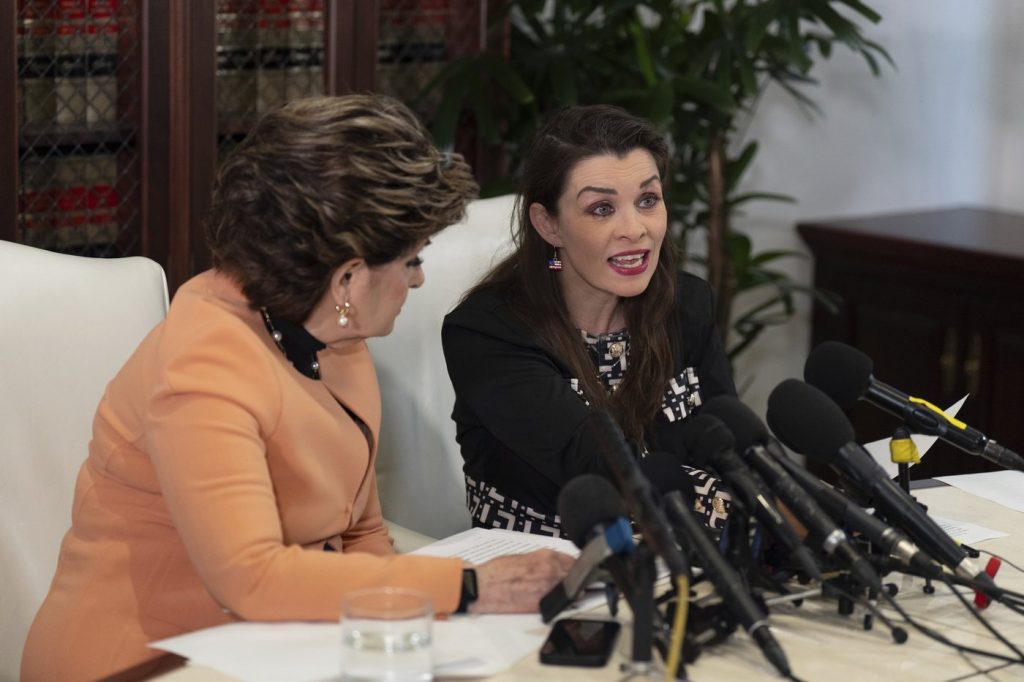The House Oversight Committee has taken significant steps by issuing subpoenas for files related to the Jeffrey Epstein sex trafficking investigation, along with depositions from former President Bill Clinton, former Secretary of State Hillary Clinton, and eight former top law enforcement officials. The pursuit of these subpoenas reflects an ongoing congressional probe that lawmakers believe may uncover connections to former President Donald Trump and high-ranking officials.
Chairman Rep. James Comer, leading the Republican-controlled committee, articulated the necessity of these subpoenas in a letter to Attorney General Pam Bondi and the former officials, indicating that the cases involving Epstein and his associate Ghislaine Maxwell have drawn substantial public interest and scrutiny. Comer emphasized the importance of Congress's oversight of the federal government’s handling of sex trafficking laws, particularly in relation to Epstein and Maxwell's investigation and prosecution.
Since Epstein's death in a New York jail cell in 2019—while he awaited trial on sex trafficking charges—conspiracy theories have proliferated regarding who was aware of his abuse of minors. The committee's recent actions indicate a bipartisan interest in examining these claims, including initiating subpoenas for the Clintons and seeking communications between the Justice Department under President Joe Biden and the administration regarding Epstein.
While Bill Clinton had previous associations with Epstein, he has never been accused of any wrongdoing related to Epstein's crimes. One notable victim, Virginia Giuffre, had made conflicting statements regarding her interactions with Clinton and Trump, complicating the narrative surrounding their connections to Epstein. Clinton has consistently denied any wrongdoing, stating he never visited Epstein's properties and had no knowledge of his alleged crimes.
The subpoenas have extended to former attorneys general from the last four presidential administrations—Merrick Garland, William Barr, Jeff Sessions, Loretta Lynch, Eric Holder, and Alberto Gonzales—as well as former FBI Directors James Comey and Robert Mueller. The interest in Epstein's case notably transcends partisan lines, with both Democrats and Republicans acknowledging the necessity of investigating the Justice Department's handling of Epstein's case.
Initially, it was Democrats who propelled the effort to subpoena the Justice Department, with support from some Republican members of the committee. Democratic Representatives Robert Garcia and Summer Lee underscored the importance of transparency regarding the Epstein files and expressed commitment to pressuring the Justice Department for full disclosure.
The Justice Department has been given a deadline of August 19 to comply with the subpoenas, though it remains typical for such requests to be subject to negotiation and potential resistance from the Biden administration. The committee has also scheduled depositions for the Clintons throughout the months of August, September, and October, with Hillary Clinton's deposition set for October 9 and Bill Clinton's for October 14.
There is a historical context concerning former presidents and congressional testimony; while multiple former presidents have voluntarily testified, none have been compelled to appear. This precedent was raised by Trump when he faced a subpoena from a House committee probing the January 6, 2021, Capitol riot, which ultimately was withdrawn.
Furthermore, the committee had previously sought an interview with Ghislaine Maxwell, who has been serving a prison sentence for her role in Epstein's trafficking operation. Comer indicated he would defer her deposition until after the Supreme Court considers an appeal regarding her conviction, as Maxwell argues she was wrongfully prosecuted.
Amidst ongoing public demands for transparency, the Justice Department is seeking to unseal grand jury transcripts from the Epstein and Maxwell cases. However, prosecutors have signaled that much of the information is already in the public domain or was disclosed during the trial process, thereby questioning the necessity of unsealing these documents. They intend to only unseal witness testimony transcripts, not the accompanying exhibits.












